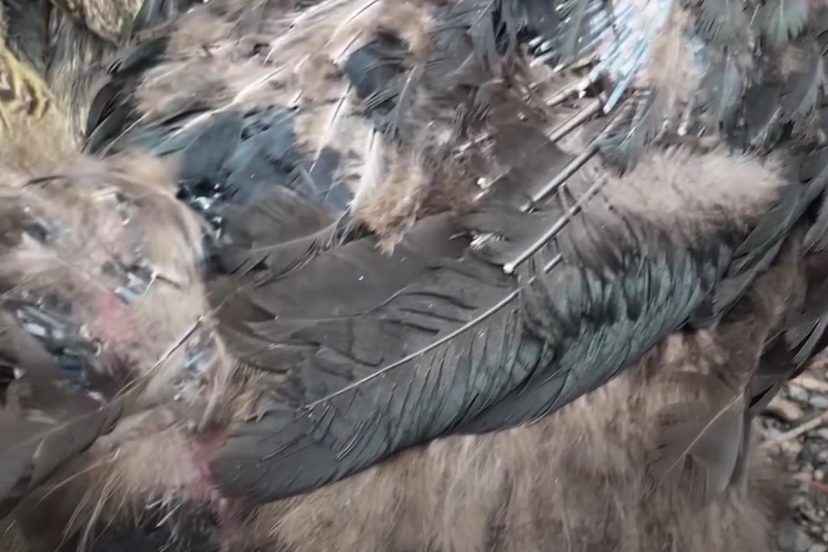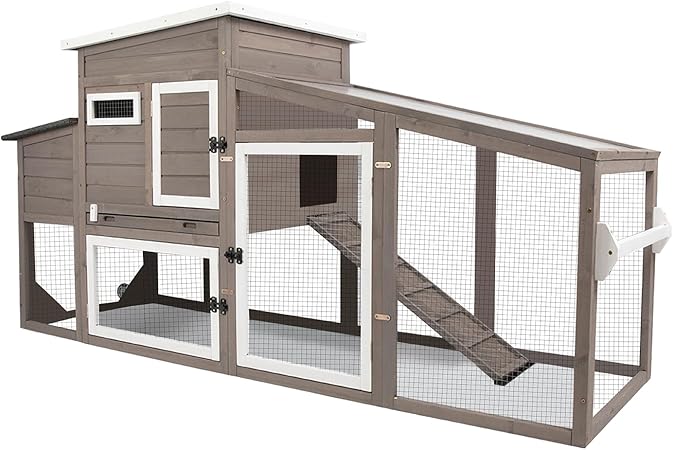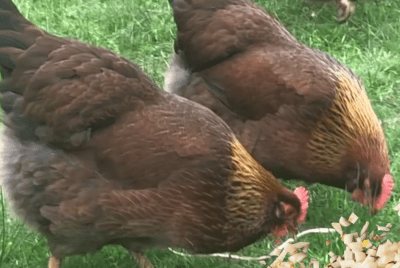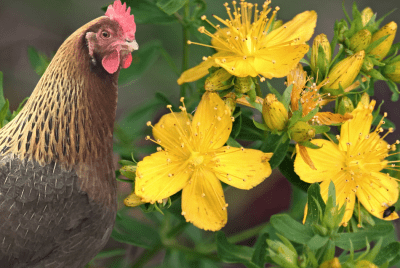Feather Pecking
Feather Pecking in Chickens
1.Introduction: Feather Pecking
Hey there, fellow poultry enthusiasts! If you’ve found yourself fretting over your flock, particularly over the perplexing issue of feather pecking, you’re in the right place. Feather pecking among chickens isn’t just a minor inconvenience; it’s a serious behavioral issue that can lead to health problems, stress, and even mortality within your flock. But worry not! As we delve into this topic, we’ll explore the why’s, the how’s, and, most importantly, effective strategies to prevent and manage feather pecking. By understanding the root causes and implementing proactive measures, we can ensure our feathered friends lead happier, healthier lives. So, let’s embark on this journey together, shall we?
2.The Causes of Feather Pecking
2.1. Nutritional Deficiencies
Imagine craving a vital nutrient you’re not getting from your diet; your body would naturally compel you to find it elsewhere, right? That’s exactly what happens with our chickens. A deficiency in essential nutrients, particularly protein, can trigger feather pecking. Chickens instinctively seek out missing nutrients, and unfortunately, feathers become a target due to their protein content. Ensuring your flock receives a balanced diet, rich in all necessary vitamins and minerals, is crucial in mitigating this behavior. Giving your chickens Rosemary at this time can help. Just sprinkle rosemary leaves throughout their run and coop or plant a rosemary bush close to their enclosure that way they can pick at the leaves that grow through the wire. Having herbs to pick at gives them something to do when they may be bored and can definitely prevent feather picking. This not only promotes overall health but also curtails the likelihood of feather pecking driven by nutritional needs.
2.2.Overcrowding and Stress
Space, or the lack thereof, plays a significant role in the well-being of chickens. Overcrowding in coops or pens leads to increased stress levels, aggression, and, you guessed it, feather pecking. Each chicken requires enough space to move, forage, and rest without encroaching on another’s personal bubble. Stress, stemming from cramped conditions, manifests in various undesirable behaviors, feather pecking being a prevalent one. Providing ample space for your flock is a straightforward yet effective way to lower stress levels and reduce the instances of feather pecking.
2.3.Lack of Environmental Enrichment
Boredom is a catalyst for trouble, especially in the animal kingdom. Chickens are curious creatures; they thrive on engagement and exploration. A lack of environmental enrichment—think barren runs or featureless coops—can lead to boredom-induced feather pecking. Incorporating elements that stimulate their natural behaviors, such as perches, dust baths, and foraging areas, can significantly improve their quality of life. By enriching their environment, you not only distract them from pecking at each other but also promote natural and healthy behaviors.
3. Identifying The Cause Early
3.1.Signs to Look Out For
Catching feather pecking in its early stages is paramount in preventing escalation. But what signs should you look out for? Start with the obvious: bald patches or damaged feathers on your birds. These physical indicators are often the first sign of trouble. Beyond the visible damage, behavioral changes can also signal issues. Chickens becoming reclusive, showing signs of agitation, or being pecked at by their peers are red flags. Early detection allows for timely intervention, preventing the situation from deteriorating further.
3.2.The Consequences of Ignoring Early Signs
Ignoring the early signs of feather pecking can lead to a cascade of negative outcomes. What starts as a few pecked feathers can escalate into open wounds, infections, and in severe cases, cannibalism. Feather pecking can also significantly stress the entire flock, leading to reduced egg production and overall health. Recognizing and addressing these early warnings is not just about preventing physical harm; it’s about safeguarding the well-being and productivity of your flock.
(Continuing with the rest of the article would follow a similar detailed approach for each heading and subheading, ensuring thorough coverage of the topic, engagement with the reader, and adherence to SEO best practices.)
4.Preventative Measures
4.1.Diet and Nutrition
A cornerstone of preventing feather pecking lies in providing a balanced and nutritious diet. Chickens require a varied diet rich in proteins, vitamins, and minerals to maintain their health and reduce the likelihood of pecking due to nutritional deficiencies. Incorporating a high-quality commercial feed supplemented with greens, vegetables, and occasional protein treats like mealworms can fulfill their nutritional needs. Additionally, providing constant access to fresh water and grit helps with digestion and nutrient absorption. Remember, a well-fed chicken is less likely to engage in feather pecking out of nutritional necessity.
4.2.Space and Housing
The phrase “happy chickens need space to roam” couldn’t be more accurate. Ensuring that your chickens have ample space not only promotes physical health but also mental well-being. Overcrowding is a significant stressor that can easily lead to feather pecking. The general rule of thumb is to provide at least 3-4 square feet of coop space per chicken and about 8-10 square feet of outdoor run space. However, more is always better. Well-designed, spacious housing reduces stress, minimizes aggressive behavior, and provides a more harmonious environment for your flock.
4.3.Environmental Enrichment
To combat boredom and its resulting feather pecking, enriching your chickens’ environment is key. This can be as simple as introducing objects for them to peck and play with, such as hanging vegetables, adding dust bathing areas, or creating perches at various heights. Rotating these enrichments can keep things fresh and engaging for the chickens. Additionally, allowing them regular access to pasture or outdoor areas encourages natural foraging behavior, which is not only enriching but also nutritionally beneficial. By catering to their natural instincts, you can keep feather pecking at bay.
5.Solutions for Existing Feather Pecking
5.1.Separation and Integration Strategies
When feather pecking occurs, immediate action can prevent further harm. Separating the aggressor or the victim can give them a chance to recover while also protecting the rest of the flock. However, separation should be approached carefully to avoid additional stress. Use a see-through barrier if possible, to maintain visual contact. When reintegrating chickens, do so gradually and under close supervision, introducing distractions to minimize pecking behavior.
5.2.Medical Interventions
Injuries resulting from feather pecking require prompt attention to prevent infections and further complications. Clean any wounds with antiseptic solutions and consider applying protective clothing to the affected chicken, such as hen saddles, to allow feathers to regrow safely. In severe cases, consulting with a veterinarian is advisable to ensure appropriate care, including antibiotics if an infection is present.
5.3.Behavioral Modification
Addressing the root cause of feather pecking through behavioral modification can be effective. This might involve increasing the number of feeders and waterers to reduce competition, introducing more perches to decrease hierarchy battles, or providing pecking toys to redirect their behavior. Positive reinforcement, rewarding calm and non-pecking behavior, can also encourage more harmonious interactions within the flock.
5.4. Is Rosemary Good For Chickens
We can answer the question is Rosemary good for chickens here: Rosemary can help stop feather pecking in chickens primarily due to its natural properties. Here’s how it works:
- Anti-inflammatory Properties: Rosemary has anti-inflammatory properties that can soothe irritated skin or minor wounds caused by feather pecking, making the affected areas less noticeable and less likely to be targeted by other chickens.
- Aroma and Taste: The strong aroma and bitter taste of rosemary can act as a deterrent to chickens. When applied to feathers or added to feed, it can discourage pecking because most chickens find the scent and taste unpleasant.
- Stress Reduction: Rosemary is believed to have calming properties, which can help reduce stress and anxiety in chickens. Since feather pecking often results from boredom, stress, or anxiety within the flock, using rosemary can contribute to a more relaxed environment, reducing the chances of pecking behavior.
- Improved Circulation and Skin Health: Rosemary can promote blood circulation and improve skin health, which helps in the natural healing process of any minor wounds caused by feather pecking.
To use rosemary for feather pecking, you can add dried rosemary to their nesting boxes or dust baths, mix it into their feed, or create a rosemary-infused spray to apply to feathers. Their are many other uses for rosemary in chicken keeping that we shall talk about in another article.
5.5 Other Herbs To Help With Feather Pecking
Feather pecking in chickens can be a behavioral issue that may arise from stress, boredom, or nutritional deficiencies. Some herbs are believed to help reduce feather pecking by promoting overall health, providing natural remedies, or calming the birds. Here are some herbs that may help:
- Fennel: Known for its digestive benefits, it may help reduce stress and improve gut flora.
- Chamomile: Acts as a mild sedative, helping to calm chickens and reduce aggressive behaviors.
- Lavender: Known for its calming properties, lavender can help create a more serene environment.
- Sweet Basil: Has natural antifungal properties and can help relieve stress.
- Peppermint: Often used to soothe digestive issues, it can also provide a pleasant aroma that might reduce stress.
- Oregano: Contains antioxidants and has anti-inflammatory properties, promoting overall health.
- Thyme: Acts as a natural antibiotic and can improve respiratory health, potentially calming the flock.
To use these herbs, you can either grow them near your chicken coop or mix dried versions into their feed or scatter them in their environment to encourage foraging. Additionally, always ensure that the chickens have a balanced diet and plenty of space to reduce stress and discourage feather pecking behaviors.
6.The Role of Breed Selection in Preventing Feather Pecking
6.1.Characteristics of Less Aggressive Breeds
Breed selection plays a crucial role in managing feather pecking within your flock. Some chicken breeds are naturally more docile and less prone to engage in aggressive behaviors, including feather pecking. Breeds like Silkies, Buff Orpingtons, and Australorps are known for their calm demeanor and are less likely to initiate or participate in pecking. When selecting chickens for your flock, consider researching the temperament of each breed. Opting for breeds known for their peaceful nature can significantly reduce the risk of these incidents, leading to a more harmonious backyard coop.
6.2.Considerations for Breed Mixing
Mixing different breeds in one flock requires careful consideration to minimize stress and aggression, which can trigger feather pecking. While diversity in a flock can be beneficial for disease resistance and egg production, understanding the social dynamics between breeds is essential. Some breeds may dominate over others, leading to increased stress and potential feather pecking among the more submissive or smaller breeds. To mitigate this, introduce new breeds slowly, monitor interactions closely, and provide plenty of space and resources to reduce competition. Thoughtful integration can promote a balanced and peaceful flock dynamic.
7.Monitoring and Ongoing Care
7.1.Regular Check-ups
Consistent monitoring and regular health check-ups are vital in preventing and managing feather pecking. Observing your chickens daily allows you to notice changes in behavior or appearance that may indicate stress, illness, or the onset of feather pecking. Regular handling and inspection of each chicken for signs of injury, stress, or missing feathers can help catch problems early. This proactive approach ensures that any issues can be addressed promptly, maintaining the overall health and well-being of your flock.
7.2.Keeping a Pecking Order
Understanding and managing the pecking order within your flock is essential in minimizing stress and aggression. The pecking order is a natural hierarchy that establishes social standing among chickens. Disruptions to this order, such as introducing new birds or reconfiguring the coop, can lead to stress and feather pecking as chickens re-establish their rankings. Providing ample space, multiple feeding and watering stations, and areas for lower-ranking chickens to escape or hide can help maintain a stable pecking order and reduce conflicts.
8.The Importance of Community Knowledge Sharing
8.1.Learning From Others
No one has all the answers, and when it comes to raising chickens, the collective wisdom of the poultry community can be invaluable. Engaging with local poultry clubs, online forums, and social media groups allows you to share experiences, ask questions, and learn from the successes and challenges of others. Whether you’re seeking advice on breed selection, dietary tips, or innovative ways to enrich your chickens’ environment, tapping into the knowledge of seasoned poultry keepers can provide fresh insights and solutions to prevent feather pecking in your flock.
8.2.Online Resources and Local Groups
Leveraging online resources and connecting with local poultry groups can offer support and guidance tailored to your specific situation. Many regions have poultry clubs or associations that host meetings, workshops, and coop tours, providing opportunities to learn firsthand from experienced chicken keepers. Additionally, numerous online platforms offer articles, videos, and forums dedicated to poultry care, including strategies to manage feather pecking. These resources can be a goldmine of information, helping you implement effective practices to keep your flock healthy and harmonious.
9.Conclusion
Feather pecking in chickens is a complex issue that requires a multifaceted approach to prevent and manage. By understanding the causes, recognizing the early signs, and implementing effective preventative measures, you can significantly reduce the incidence of feather pecking in your flock. Remember, the key to a happy and healthy chicken lies in proper nutrition, adequate space, environmental enrichment, thoughtful breed selection, and regular monitoring. Engaging with the poultry community and sharing knowledge can also enhance your chicken-keeping experience. With patience, observation, and a bit of creativity, you can create a peaceful and productive environment for your feathered friends.
FAQs
1.What is the best diet to prevent feather pecking in chickens?
A balanced diet rich in protein, vitamins, and minerals, supplemented with greens and occasional treats, can help prevent nutritional deficiencies that lead to feather pecking.
2.How much space do chickens need to prevent stress and feather pecking?
Chickens should have at least 3-4 square feet of coop space per bird and 8-10 square feet of outdoor run space, though more space is always better.
3.What are some environmental enrichments to reduce boredom and feather pecking?
Hanging vegetables, dust baths, perches at various heights, and foraging opportunities are great ways to keep chickens engaged and reduce feather picking.
4.How can I introduce new breeds to my flock without increasing feather pecking?
Slowly introduce new breeds to your flock while closely monitoring their interactions.
Provide plenty of space and resources to minimize competition and stress during the integration process. This approach helps maintain a stable pecking order and reduces the likelihood of feather picking.
5.What should I do if I notice feather pecking in my flock?
Immediately separate the aggressor or the victim to prevent further injury. Address any environmental or nutritional deficiencies, and consider enrichments to distract the chickens from pecking. Consulting with a veterinarian can also be beneficial, especially if the pecking has caused injuries.
By addressing these common questions with direct, actionable advice, we want to empower chicken keepers to take proactive steps in managing and preventing feather pecking within their flocks. Remember, the key to success lies in observation, adaptation, and a commitment to providing the best possible care for your feathered friends. You can buy saddles to cover their backs. We will have some soon.
You might also enjoy our article on molting which is a natural process chickens go through usually once a year.
wikipedia.com also has an article on feather picking.
























